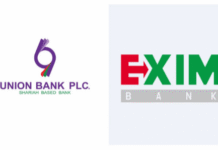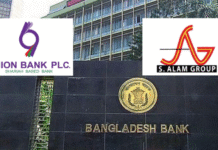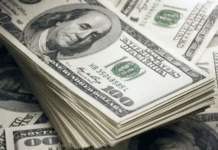Nine banks, including six state-owned banks, are facing Tk 19,446.6 crore shortfall in capital as of December 31, 2017 amid loan scams and failure to recover growing defaulted loans.
Total capital shortfall of the same banks was Tk 17,966 crore at the end of September 2017 quarter which increased by Tk 1480.6 crore during the October-December 2017 period.
The banks are state-owned commercial banks Sonali, Basic, Rupali and Janata, state-owned specialised Bangladesh Krishi Bank and Rajshahi Krishi Unnayan Bank and private commercial banks Farmers Bank, ICB Islami Bank Limited and Bangladesh Commerce Bank Limited, showed a central bank data released on Tuesday.
Former Bangladesh Bank governor Salehuddin Ahmed told New Age said that bad loan was the key reason behind the huge amount of capital shortfall in the banking sector and there was involvement of corruption as well as poor recovery of loans.
Capital shortfall of a bank can create many problems including risk of failure to return depositors money with non acceptance of letter of credit by the foreign banks in case of foreign trade, he said.
‘Capital shortfall is a threat to existence for a bank. If there is a capital shortfall, the problem for a private bank is much higher as we see in the case of Farmers Bank which is failing to repay the depositors,’ he said.
Central bank officials said that although overall banking sector could show that they had cut down the defaulted loans to Tk 74,303 crore by December 2017 from Tk 80,300 crore at the end of September 2017, they were still facing shortfall in capital as defaulted loans were rescheduled without recovery.
Of the capital shortfall, the contribution of six state-owned banks — Sonali Bank, Basic Bank, Rupali Bank, Janata Bank, Bangladesh Krishi Bank and Rajshahi Krishi Unnayan Bank — was Tk 17,442.74, while the rest Tk 2,003.86 crore was the capital shortfall of three commercial banks — Farmers Bank, ICB Islami Bank Limited and Bangladesh Commerce Bank Limited, showed the central bank data.
As per the Basel III framework, the banks have to keep at least 10 per cent capital against their risk weighted-assets.
In addition, the banks have to preserve another 1.25 per cent capital to face damage by any unexpected risks.
Scam-hit new generation Farmers Bank faced Tk 262.89 crore shortfall in capital at the end of December 2017 while the amount was Tk 75 crore at the end of September 2017.
The central bank data showed that capital shortfall stood at Tk 7776.63 crore as of December 30, 2017 from Tk 7,540 crore
as of June 30 for Bangladesh Krishi Bank, Tk 5,397.29 crore from Tk 3,140 for Sonali Bank, Tk 2,556.38 crore from Tk 2,523 crore for BASIC Bank, Tk 637 crore from Tk 690 crore for Rupali Bank, Tk 1,495.45 crore from Tk 1,485 crore for ICB Islamic Bank, Tk 245.52 crore from Tk 231 crore for Bangladesh Commerce Bank Limited and Tk 813.34 crore from Tk 742 crore for Rajshahi Krishi Unnayan Bank.
The capital shortfall of Janata Bank stood at Tk 161.48 crore as of December 31, 2017 from Tk 1,273 crore on September 30, 2017, the data showed.
The banking sector has been mired in growing bad loan following detection of series of loan scams and embezzlements, including Hallmark Group scam in Sonali Bank, shady loan of BASIC Bank, AnonTex and Bimsmillah Group’s loan scams in Janata Bank and fund embezzlement in Famers Bank Limited and NRB Commercial Bank.
Sonali failed to recover a single penny of Tk 3,500 crore gulped by little known Hallmark Group in 2013.
BASIC Bank is facing severe capital shortfall due to shady loans of Tk 6,000 crore, given during the tenure of its previous board of directors led by its former chairman Sheikh Abdul Hye Bacchu, allegedly appointed on political consideration. Janata Bank is facing loan scam of over Tk 5,000 crore given to little known AnonTex Group.
Famers Bank, which faced a major shakeup in its board in recent times, repeatedly failed in last few months to honour cheque of depositors because of cash crunch.
Even after the repeated capital shortfall because of scams, the government is set to inject around Tk 2,000 crore into the state-owned banks despite criticism from experts.
Source: New Age.









